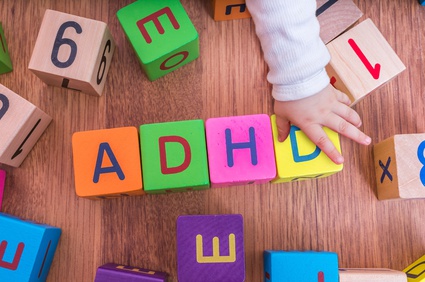
by Dr. John Sommersby
Dealing with a child with ADHD can be a significant challenge. Due to its negative reputation, ADHD is a condition that can be easily misunderstood. What others may mistake for tears or tantrums can actually be an understandable reaction to failure or frustration to the trained eye.
Proper communication is essential to raising a child with ADHD. Parents must make an effort to help their children understand the effects of their condition, and how it affects their relationship with the world around them. Fortunately, a simple but serious discussion with your child can help them understand the finer points of ADHD.
What is ADHD?
ADHD is a condition characterized by hyperactivity, inattention, and occasionally, impulsivity. Commonly diagnosed in children, the symptoms of ADHD can make it difficult for children to function at home and in social situations in school.
If left untreated, ADHD can last well into adulthood, threatening to interfere with the course of normal social, emotional and academic development.
It is imperative that parents fully understand ADHD before sitting down with their kids. Proper education is the only way to dispel misconceptions about ADHD.
The Set-Up
Make sure to pick your discussion time wisely. Schedule your conversation for a time when your child won’t be eager to do other activities. Leave no room for possible interruptions by picking an environment that minimises distractions. Be prepared for a lengthy conversation as well, as your child may ask additional questions of you.
Watch Your Tone
Always remember to speak slowly and with a soft and gentle tone. Don’t lose your cool. Being agitated will only achieve the opposite of what you’re trying to accomplish. Should your child grow unruly during the conversation, remember to keep your feelings in check, as they can detect a change in your voice and demeanour.
In the event of a tantrum, pause the conversation and re-direct their energies to a quiet and calming activity.
Feeling Special
All children want to feel loved and accepted. But for children with ADHD, words of support and encouragement take on a new level of importance. So start the conversation by reassuring and reminding them that they are ‘special’.
According to multiple researchers, children with ADHD who are constantly reminded of the support of their parents tend to do better at home and in school. Evidence has shown that verbal support can be a very effective tool in encouraging the kids themselves to realize that ADHD has no bearing on their intelligence or abilities.
No to Negativity
Another effective technique is to steer the conversation away from negativity. Instead, start the conversation with positive energy while focusing on the unique strengths of the child.
Remind them about the qualities that make them special, and refrain from criticizing them for the shortcomings.
Instead of reprimanding them for their past mistakes, point out how they can do better in the future, with a tone that is both friendly and forgiving.
Managing Expectations
However, do not expect a positive reception straight away. Chances are, your child will seem uninterested in the conversation at first. Remember that a positive attitude and a little bit of common sense remain your best assets in helping your child cope with ADHD in the long run.
Children are great mimics, and there is no one they take their cues from more than their parents. When you remain calm and focused during your discussion, your attitude will likely rub off on your child as well, calming them and re-directing their attention and energies to the topic at hand.
Establishing a Routine
Psychologist Taryn Linacre from Perth Brain Centre, suggests that a little structure can be good for children with ADHD. Children with ADHD cope better when they are exposed to an orderly routine with a set of rules that are easy to understand and follow.
Talk to your child about establishing simple rules around the house that have clear consequences depending on their good or bad behavior. This can be a valuable learning tool for kids with ADHD.
You Are Not Alone
It is also important for parents to remember that they have help when it comes to bringing up a child with ADHD. Support groups in the form of doctors, therapists and teachers exist to provide moral support on top of professional medical advice.
Do not be afraid to seek out their expert opinion and their personal experiences when attempting to introduce ADHD to your child. Parents of ADHD children also maintain a presence online, where parents can receive advice from fellow parents who have dealt with the same problems before. Use these resources to craft a rough script before speaking to your child.
Reassurance revisited
Do not lose sight of the fact that talking to your child about ADHD is all about reassuring them that everything will be fine. Because of the many misconceptions that surround it, children with ADHD will often be misunderstood – and criticized for it. Do not underestimate the power of praise, as children with ADHD often receive so little of it.
Compliment them on good behavior in the home and at school. The positive reinforcement that you can provide can push back against misguided complaints about their behavior from other sources that do not understand ADHD.
Combining a positive attitude with praise and a little reward from time to time can work wonders for the confidence of a child with ADHD. With a little time and effort, your child will be aware and fully capable of managing their condition.
(Dr. John Sommersby is a neuroscientist who writes on health related topics. Neuroscience and the healing of brain based disorders is a particular interest of his. He has been an advocate of neurological rehabilitation for people with acquired brain injury for the past twenty years.)




Be the first to comment